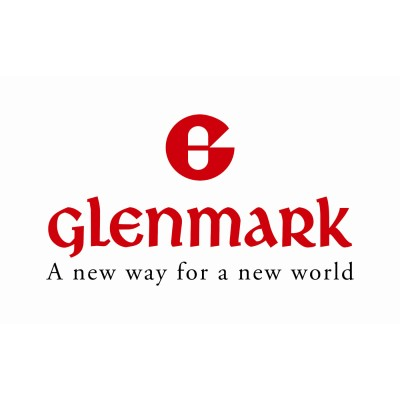The Future of Cancer Treatment: Alphamab Oncology's Innovative Approaches
May 2, 2025, 6:50 pm
In the relentless battle against cancer, innovation is the sword that cuts through despair. Alphamab Oncology, a rising star in the biopharmaceutical realm, is wielding this sword with precision. Their recent breakthroughs in bispecific antibodies and antibody-drug conjugates (ADCs) are not just steps forward; they are leaps into a future where cancer treatment may become more effective and accessible.
Alphamab's journey is marked by two significant developments: the promising results of the KN026 bispecific antibody and the introduction of two novel ADCs, JSKN021 and JSKN022. Each of these innovations targets specific cancer pathways, offering hope where traditional therapies may falter.
The KN026 bispecific antibody is a game-changer in the treatment of HER2-positive gastric cancer. In a recent Phase II/III clinical trial, KN026, when combined with chemotherapy, met its primary endpoint of progression-free survival (PFS) during an interim analysis. This is akin to finding a lighthouse in a stormy sea. The results indicate that patients receiving KN026 experienced a significant reduction in disease progression compared to those on standard treatments. The Independent Data Monitoring Committee confirmed these findings, underscoring the clinical relevance of this therapy.
KN026 operates on a unique mechanism. It binds to two non-overlapping epitopes of the HER2 protein, effectively blocking its signaling pathways. This dual action enhances its efficacy, especially in patients who have previously failed other treatments. In a world where resistance to therapies is common, KN026 shines like a beacon of hope. It has shown promise not only in gastric cancer but also in HER2-positive breast cancer, expanding its potential impact.
The clinical trials for KN026 are not just numbers on a page; they represent lives that could be transformed. The drug has already received breakthrough therapy designation from the National Medical Products Administration of China, a recognition that speaks volumes about its potential. As Alphamab prepares to present detailed data at an upcoming international conference, the anticipation is palpable. The medical community is eager to see if this innovative therapy can change the landscape of cancer treatment.
Meanwhile, at the 2025 American Association for Cancer Research (AACR) Annual Meeting, Alphamab unveiled two novel bispecific ADCs: JSKN021 and JSKN022. These compounds are designed to tackle cancer from different angles, showcasing the versatility of Alphamab's research.
JSKN021 targets both EGFR and HER3, two proteins often overexpressed in various cancers. This dual-payload ADC employs a clever strategy, combining two potent drugs to enhance its tumor-fighting capabilities. Preclinical studies have shown that JSKN021 not only binds effectively to its targets but also exhibits superior stability and efficacy compared to traditional single-payload ADCs. This is akin to a well-orchestrated symphony, where each instrument plays a crucial role in creating a harmonious outcome.
The data suggests that JSKN021 could significantly inhibit cancer cell growth across multiple cell lines. Its ability to address tumor heterogeneity is particularly noteworthy. In a landscape where tumors can vary widely, having a treatment that adapts to these differences is invaluable.
On the other hand, JSKN022 takes a different approach. It targets PD-L1 and integrins ITGB6/8, aiming to overcome resistance seen in many patients treated with PD-1/PD-L1 inhibitors. This ADC is a first-in-class innovation, utilizing a unique glycan-specific conjugation technology to enhance its stability and efficacy. The preclinical results indicate that JSKN022 could provide a new lifeline for patients who have exhausted other options.
Both JSKN021 and JSKN022 exemplify Alphamab's commitment to pushing the boundaries of cancer treatment. They are not just products of scientific inquiry; they represent a vision for a future where cancer is more manageable. The potential for these therapies to improve patient outcomes is significant, and the excitement surrounding their development is justified.
Alphamab's overarching mission is clear: to make cancer manageable and curable. Their innovative approaches, backed by robust clinical data, position them as leaders in the oncology field. With a focus on addressing unmet clinical needs, they are paving the way for a new era of cancer therapeutics.
As the world watches, Alphamab Oncology continues to forge ahead. Their advancements in bispecific antibodies and ADCs are not just scientific achievements; they are beacons of hope for millions battling cancer. The journey is far from over, but with each step, they are transforming the landscape of cancer treatment. The future looks brighter, and for many, it may just be within reach.
Alphamab's journey is marked by two significant developments: the promising results of the KN026 bispecific antibody and the introduction of two novel ADCs, JSKN021 and JSKN022. Each of these innovations targets specific cancer pathways, offering hope where traditional therapies may falter.
The KN026 bispecific antibody is a game-changer in the treatment of HER2-positive gastric cancer. In a recent Phase II/III clinical trial, KN026, when combined with chemotherapy, met its primary endpoint of progression-free survival (PFS) during an interim analysis. This is akin to finding a lighthouse in a stormy sea. The results indicate that patients receiving KN026 experienced a significant reduction in disease progression compared to those on standard treatments. The Independent Data Monitoring Committee confirmed these findings, underscoring the clinical relevance of this therapy.
KN026 operates on a unique mechanism. It binds to two non-overlapping epitopes of the HER2 protein, effectively blocking its signaling pathways. This dual action enhances its efficacy, especially in patients who have previously failed other treatments. In a world where resistance to therapies is common, KN026 shines like a beacon of hope. It has shown promise not only in gastric cancer but also in HER2-positive breast cancer, expanding its potential impact.
The clinical trials for KN026 are not just numbers on a page; they represent lives that could be transformed. The drug has already received breakthrough therapy designation from the National Medical Products Administration of China, a recognition that speaks volumes about its potential. As Alphamab prepares to present detailed data at an upcoming international conference, the anticipation is palpable. The medical community is eager to see if this innovative therapy can change the landscape of cancer treatment.
Meanwhile, at the 2025 American Association for Cancer Research (AACR) Annual Meeting, Alphamab unveiled two novel bispecific ADCs: JSKN021 and JSKN022. These compounds are designed to tackle cancer from different angles, showcasing the versatility of Alphamab's research.
JSKN021 targets both EGFR and HER3, two proteins often overexpressed in various cancers. This dual-payload ADC employs a clever strategy, combining two potent drugs to enhance its tumor-fighting capabilities. Preclinical studies have shown that JSKN021 not only binds effectively to its targets but also exhibits superior stability and efficacy compared to traditional single-payload ADCs. This is akin to a well-orchestrated symphony, where each instrument plays a crucial role in creating a harmonious outcome.
The data suggests that JSKN021 could significantly inhibit cancer cell growth across multiple cell lines. Its ability to address tumor heterogeneity is particularly noteworthy. In a landscape where tumors can vary widely, having a treatment that adapts to these differences is invaluable.
On the other hand, JSKN022 takes a different approach. It targets PD-L1 and integrins ITGB6/8, aiming to overcome resistance seen in many patients treated with PD-1/PD-L1 inhibitors. This ADC is a first-in-class innovation, utilizing a unique glycan-specific conjugation technology to enhance its stability and efficacy. The preclinical results indicate that JSKN022 could provide a new lifeline for patients who have exhausted other options.
Both JSKN021 and JSKN022 exemplify Alphamab's commitment to pushing the boundaries of cancer treatment. They are not just products of scientific inquiry; they represent a vision for a future where cancer is more manageable. The potential for these therapies to improve patient outcomes is significant, and the excitement surrounding their development is justified.
Alphamab's overarching mission is clear: to make cancer manageable and curable. Their innovative approaches, backed by robust clinical data, position them as leaders in the oncology field. With a focus on addressing unmet clinical needs, they are paving the way for a new era of cancer therapeutics.
As the world watches, Alphamab Oncology continues to forge ahead. Their advancements in bispecific antibodies and ADCs are not just scientific achievements; they are beacons of hope for millions battling cancer. The journey is far from over, but with each step, they are transforming the landscape of cancer treatment. The future looks brighter, and for many, it may just be within reach.

